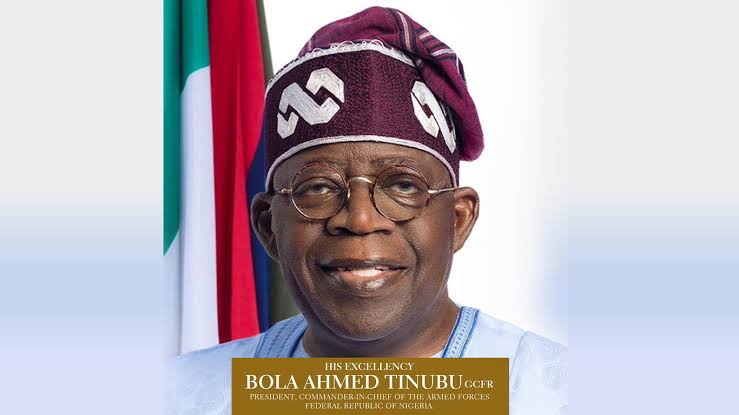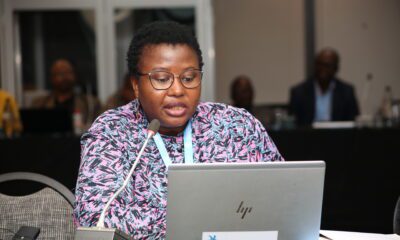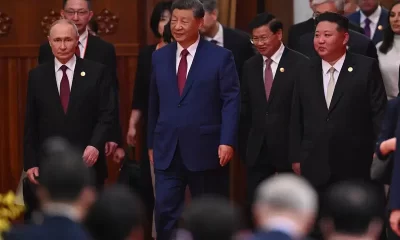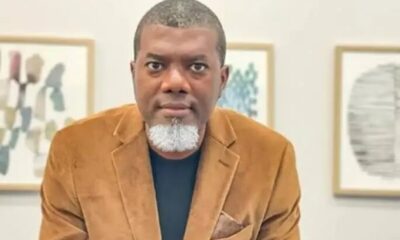National Issues
This Is No Time To Be Seen As A War Monger, Tinubu -By Rotimi Fasan
President Tinubu himself is just into his third month in office. He needs to consolidate his leadership here in Nigeria first and be assured that he has not only the support of Nigerians for his policies but also solutions to the many problems facing Nigeria.

The deadline given by the Economic Community of West African States, ECOWAS, to the military junta that recently usurped power in Niger to restore the democratic order in that country or be forcefully removed has come and gone. But as far as many Nigerians are concerned, that deadline should have been dead on arrival and might well have not been given at all.
For them, Nigeria has no business getting enmeshed in the internal affairs of Niger while it either ignores or she’s lost and has no idea of how to go about her own problems. Nigerians couldn’t be bothered with Niger because the burden of any move that would involve the use of force would be overwhelmingly borne by Nigeria. This, historically, has been the case. From Liberia, Sierra Leone to Gambia, Nigeria has played the part of the benevolent big brother with nothing to show for it.
The latest gambit, as in the past instances cited above, is being urged on the country by some of the Western countries whose underhand dealings tend to fracture the social and political fabrics of African countries. They are also the ultimate beneficiaries of the gain from such breakdown in social order. Like vultures, they wait patiently and in the background for the appropriate moment in which to swoop down on the carcass of whatever is left of the unfortunate African countries that are the latest victims of their predation and continue their plunder from where they stopped before the outbreak of hostilities.
The use of force in the manner contemplated by the ECOWAS resolution could very well lead to war should the coupists dig in and succeed in rallying Nigeriens behind them as they have been doing so far with remarkable success. Yes, the entire military of Niger (just about the size of a brigade we hear) are no match for even Nigeria alone not to mention when Nigeria is joined by the other ECOWAS-member countries that are obliged to support her by reason of their membership of ECOWAS. But in the event that they are defeated and forced out, the support they will receive from countries like Mali, Burkina Faso and Chad that have vowed to stand by the coupists are as likely as not to result in a Ukraine-like situation, where a supposed military operation that was expected to last a few days has dragged on for so long that it’s now lasted almost a full year.
If there was any doubt about Nigerians’ opposition to the government of President Bola Tinubu putting troops on the ground in Niger or, stated differently, leading the country to war in Niger, that was dispelled after a National Assembly that is controlled by supporters of the president couldn’t bring themselves to approve his request for the release of troops for the Niger mission. There are simply too many conflicting interests that undermine the possibility of a consensus on the matter. Not the least of these conflicting interests being the fact that probably half of the Nigerien population is actually made up of Nigerians who share a lot linguistically, culturally and religiously with the people of Niger.
Many of the Northern Nigerian population across seven states on the over 1, 500-kilometre border with Niger are either half Nigerien or have some part of their natal roots buried on the Nigerien side of the border. This was the case with the immediate past president of Nigeria, Muhammadu Buhari. Buhari’s romance with Niger to the extent of his government extending a controversial rail line from Nigeria into that country is an open secret that could partly account for why Tinubu feels called upon to, perhaps, act in the personal interest of his predecessor in office. Former President Buhari had himself expressed optimism that with Nigeria’s involvement in the Niger crisis, he felt a sense of relief.
Some Nigerians, should they have the opportunity, might waste no time in asking President Buhari if the request he made to Tinubu was evidence of how he listened to the cries of many Nigerians that were displaced or murdered by marauders and terrorists masquerading as farmers, during his time as president. Given some of the insights that have emerged from the debate about Nigeria’s involvement in any military mission to Niger, it is not impossible that Niger could have been an extension of the Nigerian border. In other words, both countries could be regarded as one but for the arbitrary partition of Africa that was executed by European powers in Berlin in 1885. Even if this was ignored, nobody would want to ignore the fact that many of the political, religious and pro-establishment figures in the North have spoken loudly against the deployment of Nigerian troops in Niger. That couldn’t be for nothing.
While the deadline set for the junta in Niger lapsed this past Sunday, it’s important that we remember that the latest saga that is bringing Niger and Nigeria into head-on collision, if followed through, started with the detention of President Muhamed Bazoum on July 19, and his eventual ouster on July 26, by the head of the Presidential Guard of Niger. Although the coup planners had the endorsement of many Nigeriens, their action drew the immediate condemnation of ECOWAS that is led by Nigeria. It’s as if President Bola Tinubu who assumed office as head of ECOWAS only a few weeks ago was elected for the role he’s being called upon to execute now. Is it any surprise that his name is now anathema in Niger?
With so many problems of her own, which of Niger’s many problems does Nigeria want to take on? Is it the crisis of confidence as President Bazoum faces for being member of a minority ethnic group in Niger? Could it be the problem of insurgency, grinding mass poverty, the likes of which have seen Nigeria labelled the poverty capital of the world; is that what Nigeria wants to export to Niger? Nigeria does not need to play the part of a saviour of Niger at this present time that the removal of fuel subsidy has thrown the economy into a tailspin and Nigerians are so poor that many can’t go out even to earn a living.
President Tinubu himself is just into his third month in office. He needs to consolidate his leadership here in Nigeria first and be assured that he has not only the support of Nigerians for his policies but also solutions to the many problems facing Nigeria. He needs to settle this all before dabbling in regional politics in the manner his involvement in Niger demands. Above all, it is too early for him to go into international politics in the manner of a war monger.










